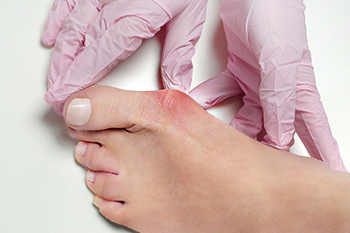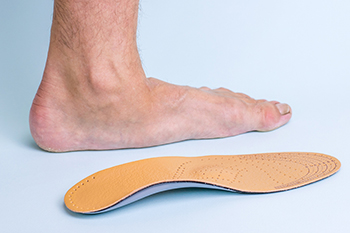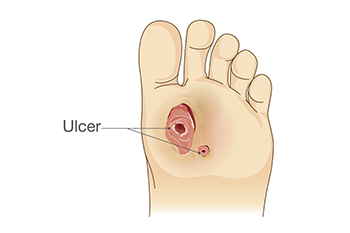
Bunions, those bony bumps that form at the base of the big toe, are a common foot ailment that can cause pain and discomfort. While many people associate bunions with wearing tight or ill-fitting shoes, the causes are often more complex than simply blaming your footwear choices. One of the primary contributors to bunions is genetics. If bunions run in your family, you may be genetically predisposed to developing them. In such cases, the way your foot bones are structured can make you more susceptible. Another significant factor is having improper foot biomechanics. If your feet roll inward excessively when you walk, termed overpronation, or if you have a flat foot arch, the increased stress on the joint at the base of the big toe can lead to bunion formation over time. While wearing tight shoes with a narrow toe box can exacerbate the problem, they generally are not the sole cause of bunions. If you have developed a bunion, it is strongly suggested that you speak with a podiatrist who can determine the cause and guide you toward the treatment method that is best for you.
If you are suffering from bunions, contact Bruce Smit, DPM of Frankfort Foot & Ankle Clinic. Our doctor can provide the care you need to keep you pain-free and on your feet.
What Is a Bunion?
A bunion is formed of swollen tissue or an enlargement of boney growth, usually located at the base joint of the toe that connects to the foot. The swelling occurs due to the bones in the big toe shifting inward, which impacts the other toes of the foot. This causes the area around the base of the big toe to become inflamed and painful.
Why Do Bunions Form?
Genetics – Susceptibility to bunions are often hereditary
Stress on the feet – Poorly fitted and uncomfortable footwear that places stress on feet, such as heels, can worsen existing bunions
How Are Bunions Diagnosed?
Doctors often perform two tests – blood tests and x-rays – when trying to diagnose bunions, especially in the early stages of development. Blood tests help determine if the foot pain is being caused by something else, such as arthritis, while x-rays provide a clear picture of your bone structure to your doctor.
How Are Bunions Treated?
If you have any questions, please feel free to contact our office located in Frankfort, IL . We offer the newest diagnostic and treatment technologies for all your foot care needs.

Flat feet are exactly what its name implies. The bottom of the foot lies flat on the ground, due to having little or no arch. Most babies are born with flat feet, and the arch typically develops during the teenage years. Adults with flat feet may have endured a foot injury or been born with an abnormal foot structure. Additionally, obesity, diabetes, high blood pressure, or rheumatoid arthritis may cause flat feet, as well as genetic reasons. Some patients who have flat feet and experience pain in various parts of the foot and ankle may choose to wear orthotics for mild relief. Severely flat feet may affect balance, and the feet may become stiff. If you have flat feet, it is suggested that you consult with a podiatrist who can offer you relief options that are suitable for you.
Flatfoot is a condition many people suffer from. If you have flat feet, contact Bruce Smit, DPM from Frankfort Foot & Ankle Clinic. Our doctor will treat your foot and ankle needs.
What Are Flat Feet?
Flatfoot is a condition in which the arch of the foot is depressed and the sole of the foot is almost completely in contact with the ground. About 20-30% of the population generally has flat feet because their arches never formed during growth.
Conditions & Problems:
Having flat feet makes it difficult to run or walk because of the stress placed on the ankles.
Alignment – The general alignment of your legs can be disrupted, because the ankles move inward which can cause major discomfort.
Knees – If you have complications with your knees, flat feet can be a contributor to arthritis in that area.
Symptoms
Treatment
If you are experiencing pain and stress on the foot you may weaken the posterior tibial tendon, which runs around the inside of the ankle.
If you have any questions please feel free to contact our office located in Frankfort, IL . We offer the newest diagnostic and treatment technologies for all your foot and ankle needs.

One of the most concerning complications of diabetes is the development of diabetic foot ulcers. A primary culprit behind diabetic foot ulcers is peripheral neuropathy, a condition where nerve damage impairs the ability to feel sensations in your feet. Without pain awareness, you may not notice the pressure your feet experience during everyday activities. This can lead to developing blisters, lesions, or sores. If these injuries are not attended to, they may evolve into foot ulcers. Another significant factor in the development of diabetic foot ulcers is poor blood flow, which can happen as a result of conditions such as peripheral arterial disease. Inadequate blood supply can hinder proper wound healing, making minor injuries prone to infections. Diabetic foot ulcers are a serious concern, and understanding the causes, in addition to taking preventive measures, can significantly reduce the risk. If you have diabetes, it is strongly suggested that you schedule regular check ups with a podiatrist who can both monitor and treat any foot problems as they arise.
Diabetic foot care is important in preventing foot ailments such as ulcers. If you are suffering from diabetes or have any other concerns about your feet, contact Bruce Smit, DPM from Frankfort Foot & Ankle Clinic. Our doctor can provide the care you need to keep you pain-free and on your feet.
Diabetic Foot Care
Diabetes affects millions of people every year. The condition can damage blood vessels in many parts of the body, especially the feet. Because of this, taking care of your feet is essential if you have diabetes, and having a podiatrist help monitor your foot health is highly recommended.
The Importance of Caring for Your Feet
Patients with diabetes should have their doctor monitor their blood levels, as blood sugar levels play such a huge role in diabetic care. Monitoring these levels on a regular basis is highly advised.
It is always best to inform your healthcare professional of any concerns you may have regarding your feet, especially for diabetic patients. Early treatment and routine foot examinations are keys to maintaining proper health, especially because severe complications can arise if proper treatment is not applied.
If you have any questions please feel free to contact our office located in Frankfort, IL . We offer the newest diagnostic and treatment technologies for all your foot and ankle needs.

Proper footwear is paramount for maintaining healthy feet. Ill-fitting shoes can lead to any number of foot problems and even increase the risk of injury. To safeguard your foot health, it's important to select shoes that not only fit well but also provide adequate support. When making your choice, consider the nature of your activity, the type of surface you'll be on, and the need for proper support. For instance, people who spend substantial time on hard surfaces may be more susceptible to heel and forefoot pain, as well as calluses and corns. Supportive shoes with softer soles and arch supports may help. High heels, which force the feet into unnatural positions, can result in long-term postural changes and increase the chances of toe deformities, such as bunions. For active people, the right footwear can ensure proper shock absorption and stability. Seek sports shoes that offer flexibility at the ball of the foot and ample heel support. If foot problems develop or persist, it is suggested that you make an appointment with a podiatrist.
It is important to find shoes that fit you properly in order to avoid a variety of different foot problems. For more information about treatment, contact Bruce Smit, DPM from Frankfort Foot & Ankle Clinic. Our doctor will treat your foot and ankle needs.
Proper Shoe Fitting
Shoes have many different functions. They cushion our body weight, protect our feet, and allow us to safely play sports. You should always make sure that the shoes you wear fit you properly in order to avoid injuries and deformities such as: bunions, corns, calluses, hammertoes, plantar fasciitis, stress fractures, and more. It is important to note that although a certain pair of shoes might be a great fit for someone else, that doesn’t mean they will be a great fit for you. This is why you should always try on shoes before buying them to make sure they are worth the investment. Typically, shoes need to be replaced ever six months to one year of regular use.
Tips for Proper Shoe Fitting
The shoes you buy should always feel as good as they look. Shoes that fit properly will last longer, feel better, and improve your way of life each day.
If you have any questions, please feel free to contact our office located in Frankfort, IL . We offer the newest diagnostic and treatment technologies for all your foot care needs.